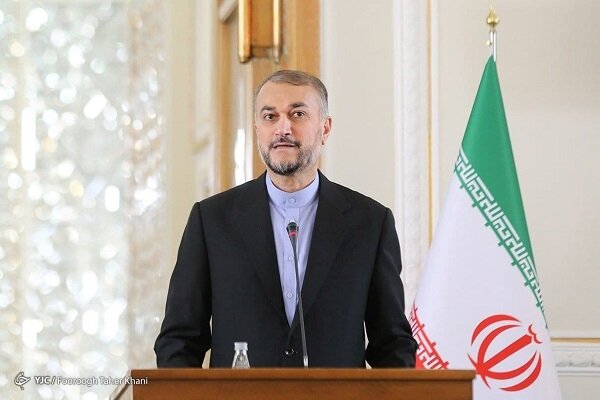U.S. is to blame for halt to Vienna talks: Iran FM

TEHRAN - Iranian Foreign Minister Hossein Amir Abdollahian has blamed the United States for the protracted Vienna talks, saying Tehran is ready for a good and durable nuclear agreement.
During a phone call with Omani Foreign Minister Badr al-Busaidi on Sunday, Amir Abdollahian slammed the U.S. for re-imposing sanctions on Iranian individuals and firms.
“The Islamic Republic of Iran is ready for a good and sustainable agreement, but so far the American side, by some of its excessive demands, has been directly responsible for the protraction of the talks,” the Iranian foreign minister remarked.
Negotiations have been underway since last April to resurrect the nuclear pact, formally known as the Joint Comprehensive Plan of Action (JCPOA), which was abandoned by former U.S. President Donald Trump in May 2018.
With his withdrawal from the accord, Trump launched a "maximum pressure" campaign to bring Iran to its knees. Tehran argues that the policy has been a colossal failure. The Joe Biden administration agrees, but has taken no concrete actions to fulfill its vow to rescind the program.
In recent months, Iran has blamed Washington's indecision for the protraction of the Vienna talks, since a number of major issues remain unresolved, ranging from the lifting of all post-JCPOA sanctions to the American side's failure to provide guarantees that it would not withdraw from the agreement again.
The other participants to the talks — Russia, China, France, the United Kingdom, and Germany – have also stated that the negotiators are nearing a conclusion.
Earlier on Sunday, Amir Abdollahian told UN Secretary-General Antonio Guterres that the ball is now in the United States' court.
During the phone call, Amir Abdollahian and al-Busaidi also addressed bilateral ties as well as regional and international issues, including the recent UN-brokered truce between the Saudi-led military coalition and Yemen's National Salvation Government.
Oman's top diplomat hailed the ceasefire and expressed gratitude to Tehran for its involvement and efforts in this respect, expressing optimism that the truce would pave the way for talks between all Yemeni parties and the reopening of the country's borders.
The Iranian minister also praised Oman's proactive action in this respect and expressed optimism that the truce would be maintained.
He emphasized the significance of fully removing brutal siege on Yemen and giving humanitarian aid to the Yemeni people.
Amir Abdollahian thanked his Omani counterpart, government, and people on Ramadan, hoped that the truce in Yemen would be durable, and praised Oman's positive contribution in this regard.
Meanwhile, Al-Busaidi greeted the Iranian government and people on the holy month of Ramadan and hailed the truce in Yemen.
On Friday, UN Special Envoy for Yemen Hans Grundberg stated that the two warring parties had agreed to a truce, which took effect on Saturday morning.
In March 2015, Saudi Arabia and a number of its regional allies, most notably the United Arab Emirates (UAE), waged a savage war against Yemen. The battle was intended to demolish Yemen's popular Houthi Ansarullah movement and reestablish a previous administration.
The fight, which was backed by a tight siege, failed to achieve its objectives, killing hundreds of thousands of Yemenis. The Saudi-led coalition's siege has prevented much-needed gasoline imports from reaching Yemen.
According to the UN Office for Humanitarian Coordination (OCHA), more than 23 million Yemenis, out of a total population of 31.9 million, are facing starvation, sickness, and other life-threatening threats as the country's basic services and economy have crumbled.
Prior to the truce, Riyadh and Abu Dhabi had increased their bombings across Yemen, and in response, Yemeni troops launched many retaliatory drone and missile assaults.
